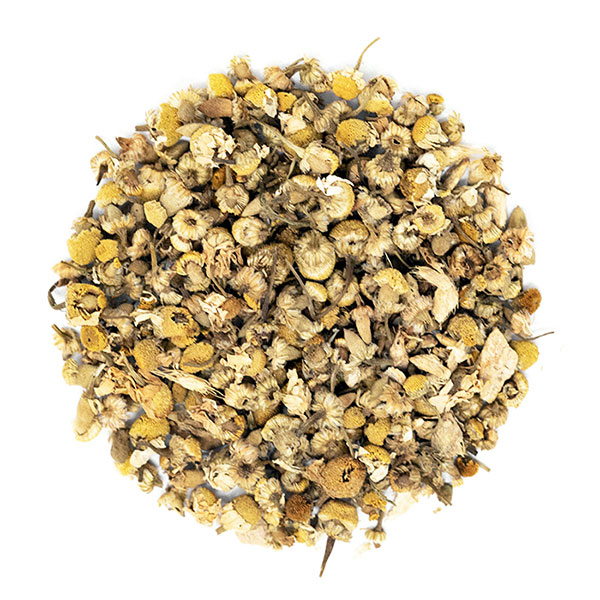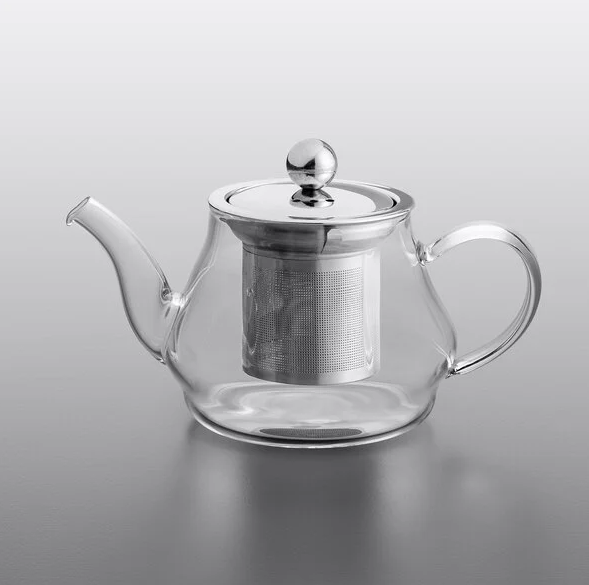Ginger Tea Benefits Guide
What is ginger tea?
Ginger tea is a caffeine free herbal tea made with fresh or dried ginger root or ginger powder. This root is a common ingredient in many cuisines. Ginger tea can be made by either steeping dry ginger root, boiling fresh ginger or dissolving ginger powder in hot water. Freshly squeezed ginger juice Is often used for treating different health-related problems too, and can be mixed with other ingredients, such as fresh lemon juice and honey. Because of its spicy and warming flavor, ginger is one of the most common ingredients in herbal blends and one of the most important ingredients in Indian masala chai. Blended with cardamom, cinnamon, star anise, black peppercorns and other spices, it’s brews into an amazingly soothing and comforting drink. Many ginger tea benefits come from three important compounds: zingerone, shogaols and gingerols, both giving a pungent taste to ginger root. Gingerols are found in fresh ginger root. When cooked or dried, they form another compound - shogaol. Shogaols are present in dried ginger. Both may provide numerous health benefits, including “anticancer, anti-oxidant, antimicrobial, anti-inflammatory and anti-allergic properties”[1].What is the best time to drink ginger tea?
Pure ginger tea contains no caffeine. It’s suitable for drinking anytime of the day or night. However, some studies suggest that taking ginger on an empty stomach may cause some side-effects, such as heartburn or abdominal pain[2]. To gain benefits, many studies suggest taking between 1000 to 1500 mg of ginger extract per day. This dose is equivalent to 1 teaspoon of freshly granted ginger or 4 8-oz cups of ginger tea made with ½ teaspoon of freshly grated ginger[3]. It’s recommended to use ginger in smaller doses throughout the day, rather than taking just one big dose.Benefits of drinking ginger tea
1. Alleviate nausea
Ginger has been used as a natural remedy for treating different types of nausea for centuries. It may help with not only different types of nausea, from morning sickness[4], motion sickness, seasickness and nausea induced by chemotherapy[5], but vomiting as well. Studies suggest that 1 grams of ginger powder a day may be enough to alleviate nausea[6]. Furthermore, taking up to 1500 mg of ginger per day to relieve nausea in pregnancy may be sufficient to alleviate the symptoms and pose no health risks[7].2. Aid in weight loss
Studies suggest that ginger may help with weight loss goals and reduce body weight, waist to hip ratio and hip ratio. However, it may not have a significant effect on triglycerides and bad cholesterol[8]. A study on animals showed that ginger water may help increase energy expenditure and help reduce body weight gain[9].3. Help with digestion
Ginger may help not only with nausea and vomiting, but with other digestive problems too. Research suggest that it may be beneficial for relieving cramps, flatulence and constipation[10]. It may stimulate gastric emptying in people with dyspepsia[11] and help relieve symptoms of irritable bowel syndrome[12].4. Relieving symptoms of allergy
Ginger may not be the first ingredient that you would take for reliving allergy symptoms, but studies say that because of its anti-allergic and anti inflammatory properties, it may be a very potent remedy for treating symptoms of allergic rhinitis. A 3 week ginger treatment with ginger may help increase the quality of life by relieving symptoms such as “itching, runny nose, nasal congestion and sneezing[13].”5. Anticancer activity
Ginger may not only help with side-effects induced by chemotherapy, but it may also provide anticancer activity too. Studies suggest it may help prevent different types of cancer, including skin, breast, liver, prostate, and gastric cancer[14].6. Relieving symptoms of common cold
Common cold is one of the most common infection of nose and throat caused by viruses, but usually not treated with medicine. Therefore, different home remedies have been very popular for reliving different symptoms of common cold – from runny nose to sore throat. Ginger may not only help with sore throat, but it may help with bacterial infections that cause sore throat too. [15]
Honey Ginger Chamomile herbal tea blend
7. Neuroprotective activity
Studies suggest that ginger, because of its anti oxidative and anti inflammatory properties, may show a neuroprotective activity in traumatic brain injury[16]. Furthermore, it may help prevent symptoms of Alzheimer’s disease too.[17] Another study showed that shogaols, from dried ginger, may provide a neuroprotective activity in Parkinsons’s disease[18]. Learn How to Make Homemade Ginger Tea and find out what are The Best Ginger Teas.Disclaimer: This article is for informational purposes only. It’s not intended to replace medical advice, diagnosis or treatment. Every person is different and may react to different herbs and teas differently. Never use teas or herbs to treat serious medical conditions on your own. Always seek professional medical advice before choosing home remedies.
References:
[1] https://pubmed.ncbi.nlm.nih.gov/26228533/ [2] https://www.sciencedirect.com/topics/pharmacology-toxicology-and-pharmaceutical-science/ginger [3] https://www.sciencedirect.com/topics/pharmacology-toxicology-and-pharmaceutical-science/ginger [4] https://www.ncbi.nlm.nih.gov/pmc/articles/PMC4818021/ [5] https://pubmed.ncbi.nlm.nih.gov/10793599/ [6] https://bjanaesthesia.org/article/S0007-0912(17)38837-2/pdf [7] https://www.ncbi.nlm.nih.gov/pmc/articles/PMC3995184/ [8] https://pubmed.ncbi.nlm.nih.gov/29393665/ [9] S Sayed; Ginger water reduces body weight gain and improves energy expenditure in rats [10] https://www.ncbi.nlm.nih.gov/pmc/articles/PMC4377061/ [11] https://www.ncbi.nlm.nih.gov/pmc/articles/PMC3016669/ [12] https://www.researchgate.net/publication/336647978_USING_BREWER%27S_YEAST_AND_GINGER_IN_THE_MANAGEMENT_OF_CONSTIPATION-PREDOMINANT_IRRITABLE_BOWEL_SYNDROME_A_RANDOMIZED_DOUBLE-BLIND_PLACEBO-CONTROLLED_TRIAL [13] https://bmccomplementmedtherapies.biomedcentral.com/articles/10.1186/s12906-020-2875-z [14] https://www.ncbi.nlm.nih.gov/pmc/articles/PMC3665023/ [15] https://www.researchgate.net/publication/269847110_RHIZOME_OF_ZINGIBER_OFFICINALE_POSSIBLE_SOURCE_OF_ALTERNATIVE_REMEDY_FOR_STREP_THROAT [16] https://faseb.onlinelibrary.wiley.com/doi/full/10.1096/fasebj.2019.33.1_supplement.795.16 [17] https://pubmed.ncbi.nlm.nih.gov/23374025/ [18] https://pubmed.ncbi.nlm.nih.gov/23811724/




Leave a comment